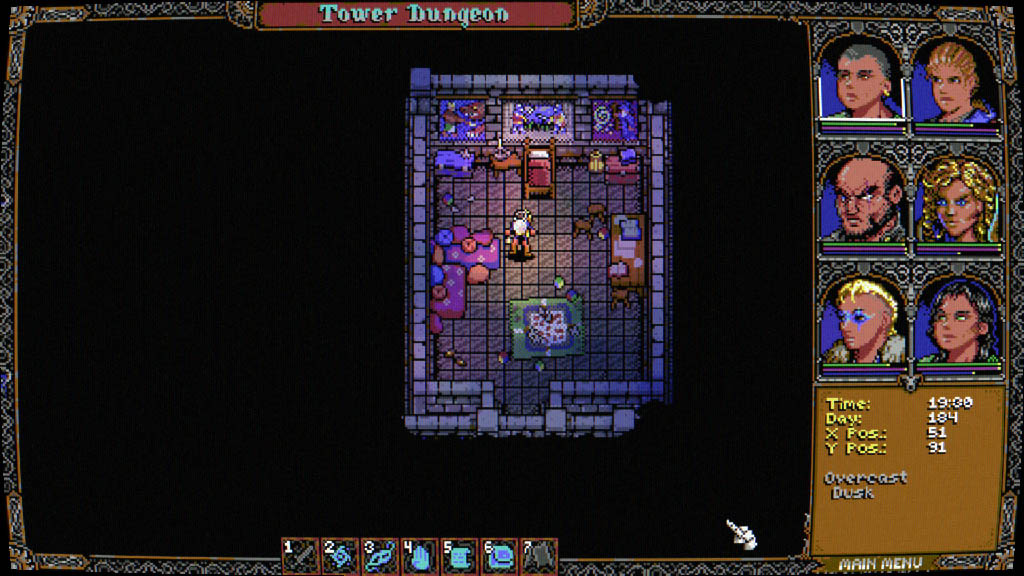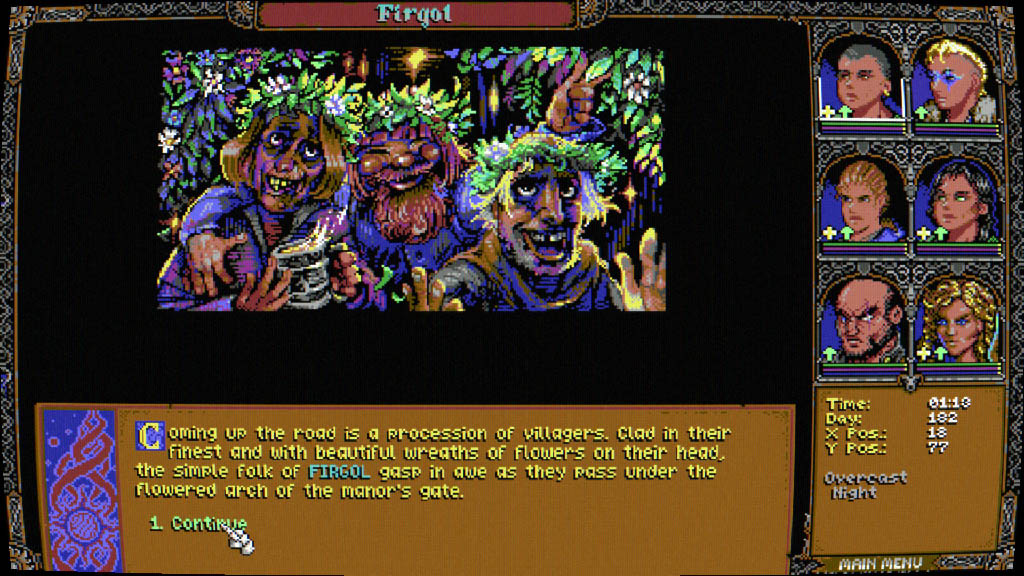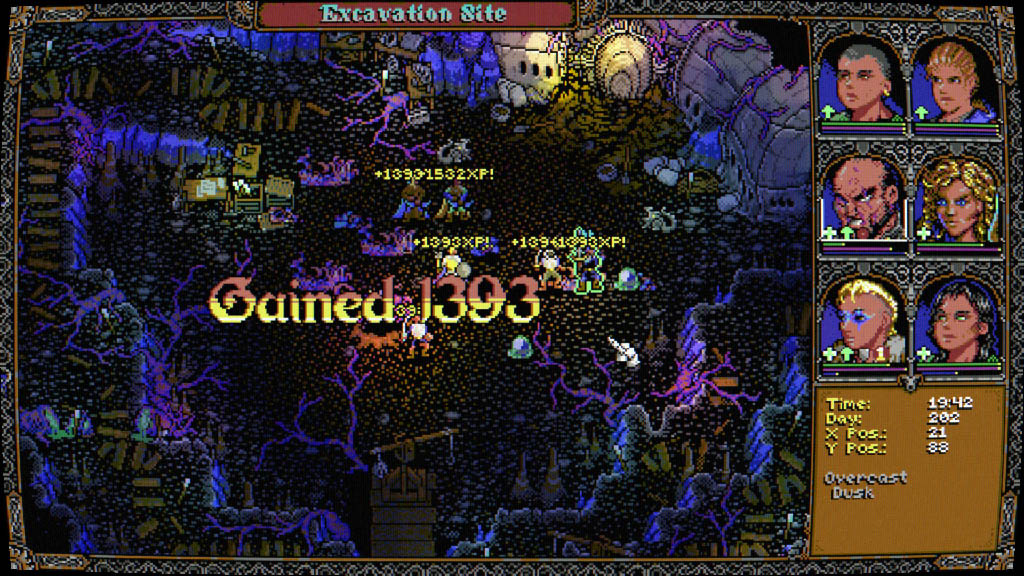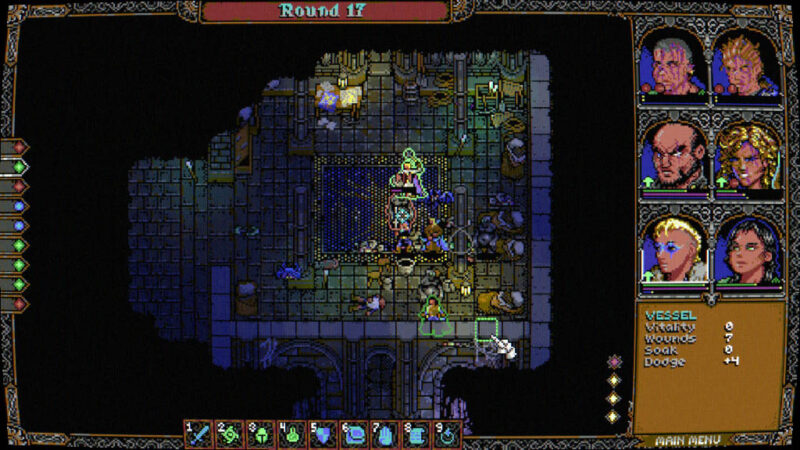Skald: Against the Black Priory
Skald was one of handful of Kickstarter projects that I have backed. It is a throwback tribute to 80s role playing games like Ultima or Phantasie with a heavy emphasis on pen-and-paper dice mechanics. Watching the game’s development has been pretty interesting. Early builds of the game look very much like the PC version of Ultima V. As the months (and years) went by that art style became much more detailed and modern stuff like weather and lighting effects were added. The final product is an incredibly detailed pixelized world to explore.

So much care has gone into every single map tile. There is an overwhelmingly brown and gray tone to the art. I think this is trying to be reminiscent of the Commodore 64 palette but at times, especially during nighttime battles, it became difficult to discern friend from foe from foliage. The art style extends into several lovely “cutscene” graphics and various dialogue screens. There are even fanciful medieval drop-cap letters in the text display.

All of this is in service of a Lovecraftian tale of dark fantasy in which various old creatures are emerging back into the world and corrupting the minds of men. As far as I could tell, there wasn’t much emergent gameplay. The story is pretty linear despite the initial open-world feel of the map. I am playing this just coming off of re-playing the first two Fallout games and perhaps I expect a bit more player choice in the narrative. But, to be fair, the Ultima games were basically adventure games with role-playing mechanics thrown on top.

The role-playing here is mostly about building the skills you can use in combat and navigating the world map. Many tasks in the game will require a stats checks and Skald literally shows dice rolling as it checks for success. As experience is gained and characters level up, the player can assign points to stats trees that differ based on class. Spells are gained, new attacks are learned, and various combat skills become unlocked.
Skald is at its best during combat. It recreates the turn-based strategy of the early Ultimas in which you control the actions of every character in order of initiative. It isn’t quite as tactical as the Wasteland sequels but there is a fair amount of positioning, spellcasting, ability management. Keeping everyone alive is a challenge and those battles that end with just a couple of party members still standing are exhilarating.
Skald falls short of greatness in that it does not quite live up to the potential of a next-gen 2-D RPG. Hopefully the engine will continue to be developed to add more environmental interactivity, a better dialogue system, and a more expansive and explorable over-world. During the Kickstarter there was walk of releasing development tools. I’d love to see what the modding community can come up with using this system.

